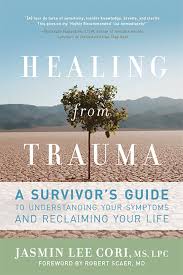Healing Trauma: A Journey to Recovery
Trauma can have a profound impact on an individual’s mental, emotional, and physical well-being. Whether stemming from a single distressing event or prolonged exposure to stress and adversity, trauma can leave deep scars that affect how we perceive ourselves and the world around us.
Healing from trauma is a complex and often challenging process that requires patience, self-compassion, and support from trained professionals. It involves acknowledging the pain and suffering caused by the traumatic experience, understanding its effects on our thoughts and behaviors, and actively working towards recovery.
Understanding Trauma
Trauma can manifest in various forms, including post-traumatic stress disorder (PTSD), anxiety disorders, depression, and other mental health conditions. It can result from experiences such as abuse, violence, accidents, natural disasters, or loss of a loved one.
Individuals who have experienced trauma may exhibit symptoms such as flashbacks, nightmares, hypervigilance, avoidance of triggers associated with the trauma, mood swings, and difficulty trusting others. These symptoms can significantly impact daily functioning and quality of life.
The Healing Process
Healing from trauma is not a linear journey; it involves ups and downs, setbacks and breakthroughs. Seeking help from mental health professionals such as therapists or counselors trained in trauma-informed care is essential in navigating this process.
Therapeutic approaches such as cognitive-behavioral therapy (CBT), eye movement desensitization and reprocessing (EMDR), dialectical behavior therapy (DBT), and somatic experiencing can be effective in addressing trauma-related symptoms and promoting healing.
Cultivating Resilience
Building resilience is a key aspect of healing from trauma. Resilience involves developing coping strategies, fostering social connections, practicing self-care activities like mindfulness meditation or yoga, setting boundaries to protect your well-being, and engaging in activities that bring joy and fulfillment.
It’s important to remember that healing from trauma takes time and effort but with dedication to self-care and professional support, individuals can reclaim their sense of safety, trust in themselves and others, and move towards a brighter future.
If you or someone you know is struggling with trauma-related issues, reaching out for help is a courageous first step towards healing. Remember that you are not alone on this journey to recovery.
Understanding and Healing Trauma: Answers to 7 Common Questions
- What is trauma and how does it impact mental health?
- What are common symptoms of trauma?
- How can therapy help in healing from trauma?
- What are effective therapeutic approaches for addressing trauma?
- How long does it take to heal from trauma?
- What self-care practices can support healing from trauma?
- How can I support a loved one who is healing from trauma?
What is trauma and how does it impact mental health?
Trauma is a deeply distressing or disturbing experience that overwhelms an individual’s ability to cope, leaving lasting emotional and psychological scars. It can result from various events such as abuse, violence, accidents, natural disasters, or loss of a loved one. Trauma impacts mental health by triggering a range of symptoms including anxiety, depression, post-traumatic stress disorder (PTSD), and other mental health conditions. These symptoms can manifest as flashbacks, nightmares, hypervigilance, avoidance behaviors, mood swings, and difficulties in trusting others. Trauma can profoundly affect how individuals perceive themselves and the world around them, leading to challenges in daily functioning and overall well-being. Seeking professional help and support is crucial in addressing trauma-related issues and promoting healing and recovery.
What are common symptoms of trauma?
Common symptoms of trauma can manifest in various ways, impacting an individual’s mental, emotional, and physical well-being. These symptoms may include flashbacks to the traumatic event, nightmares, hypervigilance, avoidance of triggers associated with the trauma, mood swings, difficulty concentrating, irritability, feelings of numbness or detachment, and heightened anxiety or fear responses. Additionally, individuals may experience disruptions in sleep patterns, changes in appetite, and physical manifestations such as headaches or stomach issues. Recognizing these common symptoms is crucial in seeking appropriate support and guidance for healing from trauma.
How can therapy help in healing from trauma?
Therapy plays a crucial role in healing from trauma by providing a safe and supportive environment for individuals to process their experiences, emotions, and beliefs related to the traumatic event. Through therapeutic techniques such as cognitive-behavioral therapy (CBT), eye movement desensitization and reprocessing (EMDR), and somatic experiencing, therapists help clients reframe negative thought patterns, process traumatic memories, and regulate overwhelming emotions. Additionally, therapy can empower individuals to develop coping skills, build resilience, and cultivate self-compassion as they navigate the complex journey of healing from trauma. The therapeutic relationship itself can also serve as a source of validation, trust, and guidance for individuals seeking to reclaim their sense of safety and well-being.
What are effective therapeutic approaches for addressing trauma?
Effective therapeutic approaches for addressing trauma encompass a range of evidence-based modalities that can help individuals navigate the healing process. Cognitive-behavioral therapy (CBT) is widely recognized for its effectiveness in helping individuals reframe negative thought patterns and behaviors associated with trauma. Eye movement desensitization and reprocessing (EMDR) is another powerful technique that focuses on processing traumatic memories to reduce their emotional impact. Dialectical behavior therapy (DBT) offers skills training to help individuals regulate emotions and improve interpersonal relationships, which can be particularly beneficial for trauma survivors. Somatic experiencing, a body-oriented approach, helps individuals release pent-up physical tension and restore a sense of safety in their bodies. These therapeutic approaches, when tailored to individual needs, can provide valuable tools for coping with trauma-related symptoms and fostering healing and resilience.
How long does it take to heal from trauma?
The duration of healing from trauma varies greatly from person to person and depends on various factors, including the type and severity of the trauma, individual resilience, available support systems, and the effectiveness of therapeutic interventions. While some individuals may experience significant progress in a relatively short period, for others, healing may be a lifelong journey marked by ups and downs. It’s important to approach the healing process with patience, self-compassion, and a willingness to seek professional help when needed. Remember that there is no set timeline for healing from trauma, and progress is unique to each individual’s experiences and circumstances.
What self-care practices can support healing from trauma?
Self-care practices play a crucial role in supporting healing from trauma. Engaging in activities that promote relaxation, such as mindfulness meditation, deep breathing exercises, and yoga, can help regulate stress responses and calm the nervous system. Creating a routine that includes adequate sleep, healthy nutrition, and regular physical exercise can also contribute to overall well-being and resilience. Additionally, seeking support from trusted friends, family members, or mental health professionals, practicing self-compassion, setting boundaries to protect one’s emotional space, and engaging in activities that bring joy and comfort are all valuable self-care practices that can aid in the healing process from trauma.
How can I support a loved one who is healing from trauma?
Supporting a loved one who is healing from trauma requires patience, empathy, and understanding. It’s important to create a safe and non-judgmental space for them to express their feelings and experiences at their own pace. Listen actively, validate their emotions, and offer reassurance that you are there for them unconditionally. Encourage them to seek professional help if needed and respect their boundaries and triggers. Small gestures of kindness, such as spending quality time together or providing practical support, can also make a significant difference in their healing journey. Remember that healing from trauma is a process that takes time, so be patient and supportive as your loved one navigates this challenging path towards recovery.




